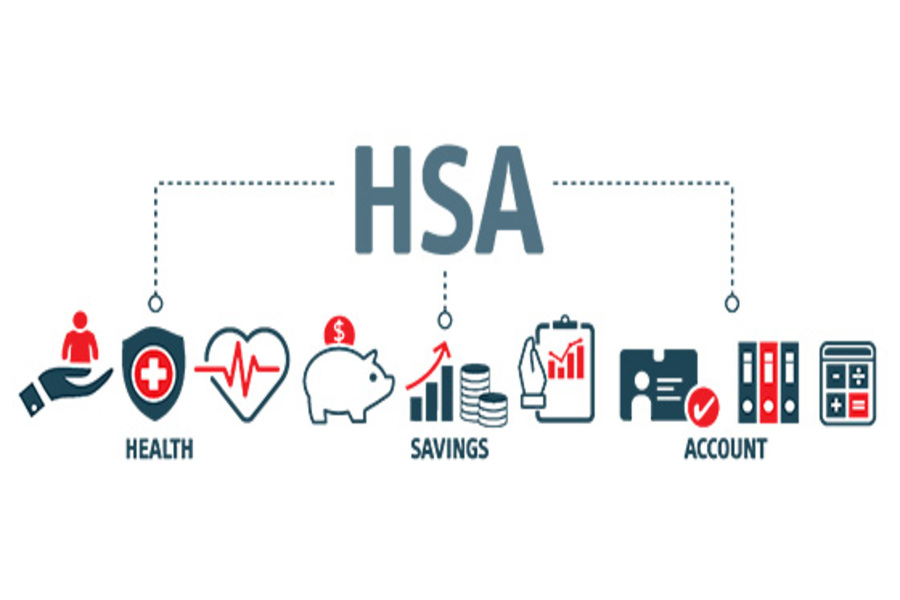Occupational fraud risk isn’t necessarily shared evenly by all business sectors. Certain industries — for example, construction, real estate, manufacturing and transportation — are usually more vulnerable to employee theft, according to the Association of Certified Fraud Examiners (ACFE). Other industries may not have greater fraud exposure but face specific threats. Here are some industry-related risks and how businesses in these sectors can prevent fraud with strong internal controls. Construction Some types of fraud are more prevalent in the construction industry, particularly payroll and billing fraud. Segregation of accounting duties — having them performed by more than one employee — is critical to reducing both types. To prevent payroll fraud, have someone independent of your accounting department verify the names and pay rates on your payroll. If you...

With the escalating cost of health care, many people are looking for a more cost-effective way to pay for it. For eligible individuals, a Health Savings Account (HSA) offers a tax-favorable way to set aside funds (or have an employer do so) to meet future medical needs. Here are four tax benefits: Contributions made to an HSA are deductible, within limits, Earnings on the funds in the HSA aren’t taxed, Contributions your employer makes aren’t taxed to you, and Distributions from the HSA to cover qualified medical expenses aren’t taxed. Eligibility To be eligible for an HSA, you must be covered by a “high deductible health plan.” For 2023, a high deductible health plan is one with an annual deductible of at least $1,500 for self-only coverage,...
When preparing a business valuation, quantitative data — from tax returns, financial statements, contracts and other sources — is important. But there’s more to a company than numbers. Qualitative factors also contribute to a company’s overall value. It isn’t always easy, however, to gain insight into qualitative aspects of a business’s operations. Websites and marketing materials can provide only limited insight. So there’s almost no substitute for conducting a one-on-one interview with a company’s owner or management team. Answering key questions Depending on why a business valuation is being sought, your valuator will ask a variety of questions during the management interview. Among other things, interviews usually provide answers to the following key questions about a company’s operations and outlook: Does the company have adequate management depth? A company’s...
In recent years, merger and acquisition activity has been strong in many industries. If your business is considering merging with or acquiring another business, it’s important to understand how the transaction will be taxed under current law. Stocks vs. assets From a tax standpoint, a transaction can basically be structured in two ways: 1. Stock (or ownership interest) sale. A buyer can directly purchase a seller’s ownership interest if the target business is operated as a C or S corporation, a partnership, or a limited liability company (LLC) that’s treated as a partnership for tax purposes. The now-permanent 21% corporate federal income tax rate under the Tax Cuts and Jobs Act (TCJA) makes buying the stock of a C corporation somewhat more attractive. Reasons: The corporation will pay less tax and...
If your investments have fluctuated wildly this year, you may have already recognized some significant gains and losses. But nothing is decided tax-wise until year-end when the final results of your trades will reveal your 2023 tax situation. Here’s what you need to know to avoid tax surprises. Tax-favored retirement accounts and taxable accounts If you’ve had wild swings in the value of investments held in a tax-favored 401(k), traditional IRA, Roth IRA or self-employed SEP account, there’s no current tax impact. While these changes affect your account value, they have no tax consequences until you finally start taking withdrawals. At that point, the size of your balance(s) will affect your tax bills. If you have investments in a Roth IRA, qualified withdrawals taken after age 59½...
Small businesses generally operate on principles of trust, particularly if several family members are involved. You might trust any employee to lock up the office at the end of the day or provide any colleague with administrative privileges to your website. After all, you know these people. But as businesses grow and hire new employees, it makes less sense to trust everyone implicitly. Even if your business remains small, some workers may be motivated to put their own financial interests ahead of your company’s. For this reason, businesses of every size need a conflict-of-interest policy that outlines ethical expectations and the consequences of violating them. An employer, not an employee, decision To understand the problem, it helps to look at a fictional example. Let’s say that Owen is...
Do you and your spouse together operate a profitable unincorporated small business? If so, you face some challenging tax issues. The partnership issue An unincorporated business with your spouse is classified as a partnership for federal income tax purposes, unless you can avoid that treatment. Otherwise, you must file an annual partnership return, on Form 1065. In addition, you and your spouse must be issued separate Schedule K-1s, which allocate the partnership’s taxable income, deductions and credits between the two of you. This is only the beginning of the unwelcome tax compliance tasks. The self-employment (SE) tax problem The SE tax is how the government collects Social Security and Medicare taxes from self-employed individuals. For 2023, the SE tax consists of 12.4% Social Security tax on the first $160,200...
The holidays are just around the corner. Many people may want to make gifts of cash or stock to their loved ones. By properly using the annual exclusion, gifts to family members and loved ones can reduce the size of your taxable estate, within generous limits, without triggering any estate or gift tax. The exclusion amount for 2023 is $17,000. The exclusion covers gifts you make to each recipient each year. Therefore, a taxpayer with three children can transfer $51,000 to the children this year free of federal gift taxes. If the only gifts made during a year are excluded in this fashion, there’s no need to file a federal gift tax return. If annual gifts exceed $17,000, the exclusion covers the first $17,000 per recipient,...
As reported via IR-2023-202 on 11/1/2023 IRS opens free Energy Credit Online tool for sellers of clean vehicles to register for time-of-sale reporting and dealer advance payments for the Clean Vehicle Credit The Internal Revenue Service announced today that sellers of clean vehicles can now register using the new IRS Energy Credits Online tool, available free from the IRS. Known as IRS Energy Credits Online or IRS ECO, this free electronic service is secure, accurate and requires no special software. Though available to any business of any size, IRS Energy Credit Online may be especially helpful to any small business that currently sells clean vehicles. The IRS’s new Energy Credits Online tool will allow dealers and sellers of clean vehicles to complete the entire process online and receive advance...
Are employees at your business traveling and frustrated about documenting expenses? Or perhaps you’re annoyed at the time and energy that goes into reviewing business travel expenses. There may be a way to simplify the reimbursement of these expenses. In Notice 2023-68, the IRS announced the fiscal 2024 special “per diem” rates that became effective October 1, 2023. Taxpayers can use these rates to substantiate the amount of expenses for lodging, meals and incidentals when traveling away from home. (Taxpayers in the transportation industry can use a special transportation industry rate.) Basics of the method A simplified alternative to tracking actual business travel expenses is to use the “high-low” per diem method. This method provides fixed travel per diems. The amounts, provided by the IRS, vary from locality to...
- 1
- 2
- 3
- 4
- 5
- 6
- 7
- 8
- 9
- 10
- 11
- 12
- 13
- 14
- 15
- 16
- 17
- 18
- 19
- 20
- 21
- 22
- 23
- 24
- 25
- 26
- 27
- 28
- 29
- 30
- 31
- 32
- 33
- 34
- 35
- 36
- 37
- 38
- 39
- 40
- 41
- 42
- 43
- 44
- 45
- 46
- 47
- 48
- 49
- 50
- 51
- 52
- 53
- 54
- 55
- 56
- 57
- 58
- 59
- 60
- 61
- 62
- 63
- 64
- 65
- 66
- 67
- 68
- 69
- 70
- 71
- 72
- 73
- 74
- 75
- 76
- 77
- 78
- 79
- 80
- 81
- 82
- 83
- 84
- 85
- 86
- 87
- 88
- 89
- 90
- 91
- 92
- 93
- 94
- 95
- 96
- 97
- 98
- 99
- 100
- 101
- 102
- 103
- 104
- 105
- 106
- 107
- 108
- 109
- 110
- 111
- 112
- 113
- 114
- 115
- 116
- 117
- 118
- 119
- 120
- 121
- 122
- 123
- 124
- 125
- 126
- 127
- 128
- 129
- 130
- 131
- 132
- 133
- 134
- 135
- 136
- 137
- 138
- 139
- 140
- 141
- 142
- 143
- 144
- 145
- 146
- 147
- 148
- 149
- 150











